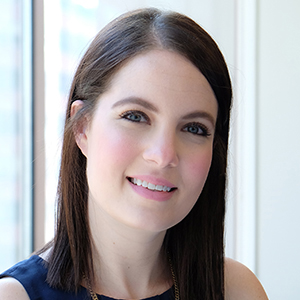When my husband and I decided we were ready to have children, we never could have imagined the long and difficult road it would take for us to get there. After more than a year of trying, we decided it was time to meet with doctors and start the process of fertility treatments.
We were nowhere near alone in our experience. In the US, 1 in 5 married women of reproductive age experience infertility; globally, about 1 in 6 adults are affected by infertility. Fertility treatments are also a critical avenue of family formation for LGBTQ couples and single people who want to become parents. About 4 in 10 adults say they have used fertility treatments or personally know someone who has. It is also well-documented that people of color, low income people, people with disabilities, and LGBTQ people struggle to access fertility treatments and receive care at disproportionately low numbers.
Even with all of our privilege, our path with fertility treatments was arduous. There were months of lab work, medical imaging, different medication combinations, and multiple failed intrauterine insemination (IUI) attempts. When we finally moved on to trying IVF, it involved complicated medication protocols, including injections I administered to myself; doctor’s office visits 3-4 times per week for blood draws and ultrasounds; a surgical procedure to retrieve my eggs; and days and days of waiting to see if we would have healthy embryos to implant. The process cost us thousands of dollars, took a physical toll on my body, and was emotionally trying for both me and my husband.
All of this is to say that I understand deeply what it means to go through IVF, and know in my bones how it feels to think of every egg and embryo as an opportunity to have a hoped-for child.
But what the Alabama Supreme Court has done in ruling that an embryo counts as a child under the state’s Wrongful Death of a Child statute does not honor my experience. Instead the court weaponizes the psychological toll of fertility treatment in service of an extremist, ideological project to undermine reproductive freedom and autonomy.
Already, the court’s ruling is having a chilling effect on providers and curtailing access to IVF for people in Alabama. One hospital, the eighth-largest in the country, has stopped offering IVF, and other health care providers will likely follow. The American Society for Reproductive Medicine has condemned the decision, calling it “profoundly misguided and dangerous” and noting the harms to both providers and patients that will result.
But this case is about so much more than fertility treatments. This is the long tail of the Supreme Court’s decision in Dobbs, and the next frontier in a concerted strategy by the anti-abortion movement to imbed “fetal personhood” throughout the law.
These so-called fetal personhood laws would grant fetuses the same legal rights and protections as any person – and the implications are far-reaching. Not only would such laws essentially make abortion murder, but they also have the potential to criminalize health care procedures like cancer treatment, and more broadly undermine the rights of pregnant people in making health care decisions, such as whether or when to have certain medical interventions during pregnancy.
Fundamentally, the idea of fetal personhood is about controlling and limiting the reproductive choices of women and anyone who can become pregnant. Rulings like the one in Alabama at best minimize – but in truth reveal a hostility toward – the challenges and realities that people face in deciding whether, when, or how to become a parent. And they fail to honor the dignity and autonomy of women and people who can become pregnant – to recognize our personhood and our right to determine our own futures.
The choice and ability to build a family is a fundamental right and a core tenet of reproductive justice. I now have two beautiful children because I was able to access IVF – everyone deserves that same chance to have the family they want.
Share this blog post on Instagram:
Share this blog post on Twitter:
This week's Alabama Supreme Court ruling under the Wrongful Death of a Child statute broadened the attacks on reproductive care. NPWF's @shainaleah shares moving commentary on the ruling and the very real pain it will cause those in need of IVF care.https://t.co/skNwhWZo3m
— National Partnership (@NPWF) February 23, 2024


